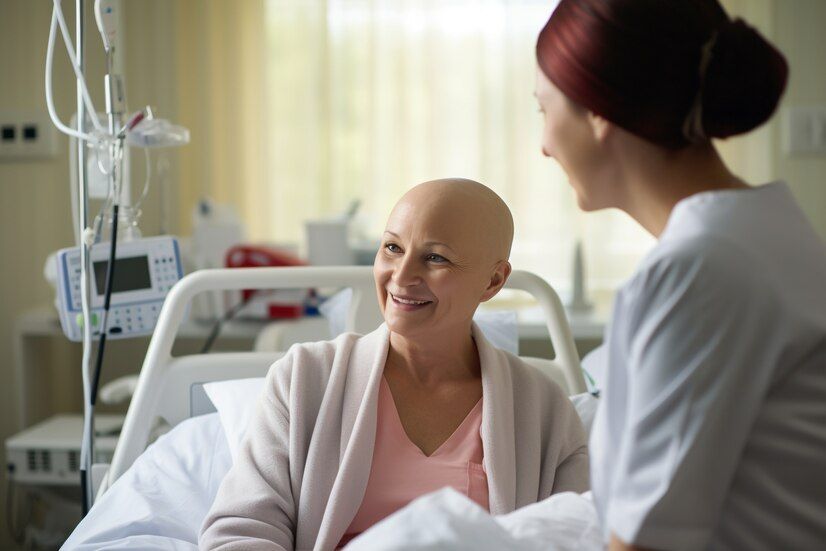Progress in early detection is changing how cancer is treated worldwide. In India, awareness about early diagnosis has become increasingly important for improving outcomes and supporting patients. Detecting cancer at an early stage enhances treatment outcomes and helps reduce the physical and emotional strain on patients and their families. With expanding healthcare infrastructure and experienced specialists, Delhi has emerged as a centre where prevention, timely diagnosis, and personalised care are gaining prominence.
Understanding the Importance of Early Detection
Hospitals offering Cancer Treatment in Delhi have recognised that detecting the disease at its earliest stage significantly improves recovery outcomes. Early detection means identifying cancer before it spreads to other organs, giving doctors the chance to begin treatment when the disease is most responsive. Many patients remain unaware of initial signs because symptoms can be subtle or mistaken for common ailments, which makes regular health check-ups and screening vital.
Regular screening helps doctors identify abnormal changes long before visible symptoms develop. Tests such as mammograms, Pap smears, colonoscopies, and low-dose CT scans of the lungs enable specialists to detect early signs and start preventive or targeted therapies quickly. These medical interventions help control disease progression, reduce complications, and improve patient confidence in the treatment process.
How Early Detection Improves Treatment Outcomes
Timely detection helps doctors create personalised treatment strategies that are effective yet less intensive. This offers patients multiple advantages:
- Wider treatment options: Early diagnosis enables effective removal or treatment of localised cancer.
- Lower complication risk: Limiting disease spread reduces side effects and recovery time.
- Improved long-term outcomes: Early care enhances remission rates and overall survival.
- Better psychological readiness: Patients and families have more time to mentally and practically prepare.
Hospitals with advanced screening and diagnostic facilities, such as BLK-Max Super Speciality Hospital, make early detection more accurate and accessible. By identifying changes at an early stage, these centres help patients receive timely care, offering reassurance, confidence, and greater control throughout their treatment journey.
Common Screening Methods and Their Benefits
Screening allows doctors to detect cancer risk early and begin timely management. The most common screening procedures include:
- Mammography: Helps identify breast tumours before they can be felt.
- Pap Smear and HPV Tests: Detect precancerous changes in the cervix.
- Colonoscopy: Finds and removes small polyps that could turn malignant.
- PSA Test: Identifies prostate irregularities.
Delhi’s healthcare institutions have invested heavily in modern diagnostic tools and laboratories. These advancements ensure higher accuracy, faster reporting, and broader accessibility for patients. The result is greater awareness, faster intervention, and higher treatment success rates.
Awareness and Lifestyle Factors
Awareness remains the first step in fighting cancer. Many individuals delay consultation due to misconceptions or fear, which allows the disease to progress unnoticed. Educating people about the importance of regular check-ups and symptom recognition can help bridge this gap.
Lifestyle habits play a crucial role in cancer prevention. Maintaining healthier routines can reduce overall risk:
- Avoid smoking and tobacco products.
- Limit alcohol consumption.
- Eat a balanced diet rich in fruits and vegetables.
- Exercise regularly and maintain a healthy weight.
- Undergo regular medical check-ups, especially if you have a family history of cancer.
By combining lifestyle improvement with awareness and early screening, the risk of developing cancer can be significantly reduced. Hospitals promoting Cancer Treatment in Delhi regularly conduct public campaigns to encourage preventive healthcare and community engagement.
Role of Hospitals and Specialists
Cancer treatment requires a coordinated team of professionals. Delhi’s leading hospitals have developed advanced oncology units that offer integrated services, from diagnosis and counselling to treatment and rehabilitation. The participation of oncologists, radiologists, surgeons, and support staff ensures that every patient receives well-rounded care.
This multidisciplinary approach combines clinical precision with compassionate support, ensuring personalised treatment plans suited to each patient’s condition. Such collaboration helps improve recovery rates and enhances the quality of life.
The Human Side of Early Detection
Beyond medical results, early detection provides emotional reassurance. When a patient learns of cancer at a treatable stage, the outlook becomes more positive, and recovery feels achievable. Families gain valuable time to prepare, seek guidance, and support their loved ones through treatment.
Hospitals that emphasise empathy, patient education, and strong communication help reduce anxiety and strengthen trust between caregivers and patients. This human connection is as vital as any medical intervention.
Conclusion
Early detection remains the foundation of successful cancer care. Identifying cancer in its initial stages allows doctors to act decisively, improving outcomes and reducing the intensity of treatment. Regular screening, awareness, and healthy lifestyle choices can together lower the overall disease burden.
With advanced diagnostic facilities and skilled medical professionals, Delhi offers access to timely, effective, and compassionate healthcare. Collective awareness, modern facilities, and responsible health practices ensure that more people benefit from early intervention and improved recovery.

